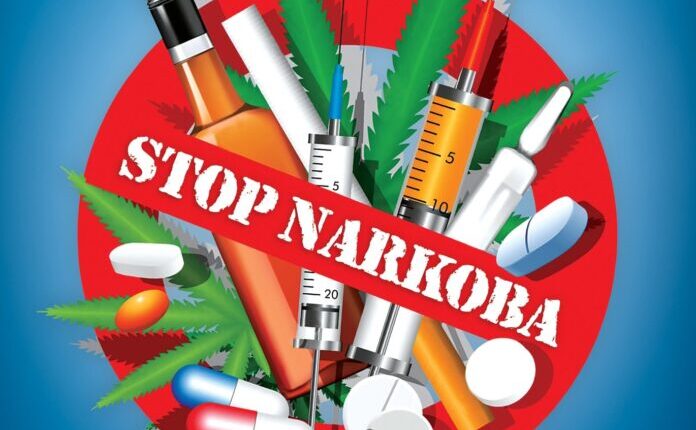President Prabowo’s Leadership Calls for Eradication of Drugs to the Roots
By Rizal Syahputra )*
President Prabowo Subianto has shown a strong commitment to combating the spread of drugs that are destroying the nation’s generation. In his bilateral meeting with President Dina Boluarte at the Peruvian Palace, President Prabowo emphasized the importance of international cooperation in combating narcotics, stating that Indonesia and Peru share the view of the urgency of stability in the Pacific region free from the threat of drugs. President Prabowo’s move to strengthen cross-country collaboration is a bold effort to face complex and cross-border challenges. This also reflects his ambition that Indonesia will not only play an active role domestically but also have a major influence at the global level in eradicating drugs.
At the national level, President Prabowo’s vision of a drug-free Indonesia is realized through various concrete policies and programs, including the Asta Cita Program. In order to support this national mission, the East Aceh Police under the leadership of AKBP Nova Suryanadaru implemented the “Drug-Free Village” (KBN) as part of drug prevention efforts targeting the smallest communities. This program shows that the war on drugs cannot only be carried out in urban centers but must also reach remote villages, where drug trafficking is increasingly widespread. The implementation of KBN does not only rely on the strength of law enforcement but also involves community participation in eradicating drugs, forming a collective awareness that drug abuse is a common problem that must be fought together.
The success of this program certainly requires support from all elements of society, as expected by AKBP Nova Suryanadaru. He emphasized that the anti-drug campaign is a national obligation that requires cross-sectoral cooperation. This approach emphasizes that the war against drugs is not just the task of the police or law enforcement agencies, but a shared responsibility to save the future of the nation. By involving the community, local government, and other elements, KBN is expected to become the foundation for a larger national movement in creating a safe, drug-free environment, so that the vision of Indonesia Emas 2045 can be achieved without the shadow of narcotics.
In addition, drug eradication efforts are also evident from the actions taken in the correctional environment. The Head of Palangka Raya Prison, Bambang Widiyanto, stated that his party is fully committed to eradicating drug trafficking in the prison. Through collaboration with the Central Kalimantan Police’s Drug Investigation Directorate, Palangka Raya Prison routinely conducts raids to ensure the environment is free from drug abuse. The “Zero Halinar” program (no cellphones, illegal levies, and drugs) run by Palangka Raya Prison is a real example of preventive measures in the correctional sector. This step shows the seriousness of the correctional institution in supporting the drug eradication policy of President Prabowo’s government, and emphasizes that the government’s commitment does not stop at the wider community, but also targets all levels, including the prison and detention environment.
The drug eradication movement initiated by President Prabowo is not merely symbolic. Concrete steps from the center to the regions, including in the correctional environment, show that this is part of a grand vision to create a healthy and strong nation, free from the threat of narcotics. The direct involvement of the community in prevention efforts through programs such as KBN, and the seriousness of related institutions in taking action against drug trafficking, show that Indonesia is transforming into a country that has strong resistance to the threat of narcotics. Collaboration and synergy between the central government, regional governments, and all elements of society are the main keys to achieving this goal.
President Prabowo’s leadership in eradicating drugs can also be seen as a strategic step to strengthen national resilience. The threat of drugs is not only a matter of public health, but also touches on social, economic, and even political aspects. Drugs are a major threat that can damage the social order and hinder the progress of the nation. By placing drug eradication as one of the national priority agendas, President Prabowo is building a strong foundation for future generations so that they can grow in a healthy and safe environment.
President Prabowo’s courage to fight drugs to the roots is expected to inspire regional leaders, law enforcement officers, and the wider community to be actively involved in this movement. Indonesia cannot fight alone in fighting the cross-border distribution of drugs. Support and cooperation with neighboring countries, such as Peru, which also faces similar challenges, is very important. The understanding between Indonesia and Peru in facing the threat of drugs in the Pacific region adds to Indonesia’s strength in international forums, while strengthening regional stability.
Overall, President Prabowo’s commitment to combating drugs reflects a vision of leadership that is firm, progressive, and oriented towards the future of the nation. Through international cooperation and cross-sectoral collaboration within the country, President Prabowo’s administration has shown that Indonesia is ready to face the threat of drugs seriously. With programs designed to prevent and combat drug trafficking in society, as well as strengthening synergy with friendly countries, Indonesia is moving towards a new era free from the threat of narcotics.
)* the author is a contributor to the Anti-Drug Caring Generation
